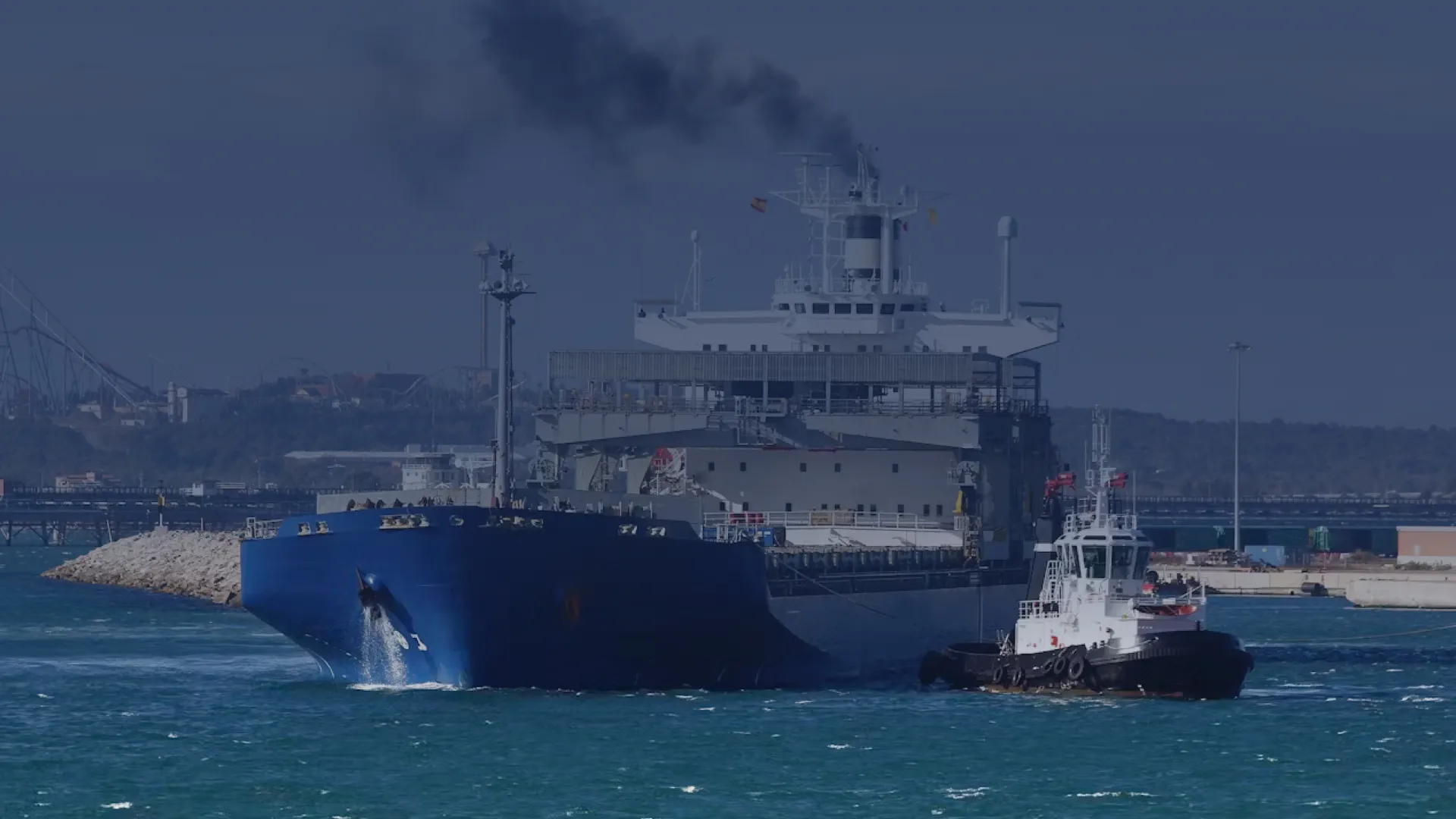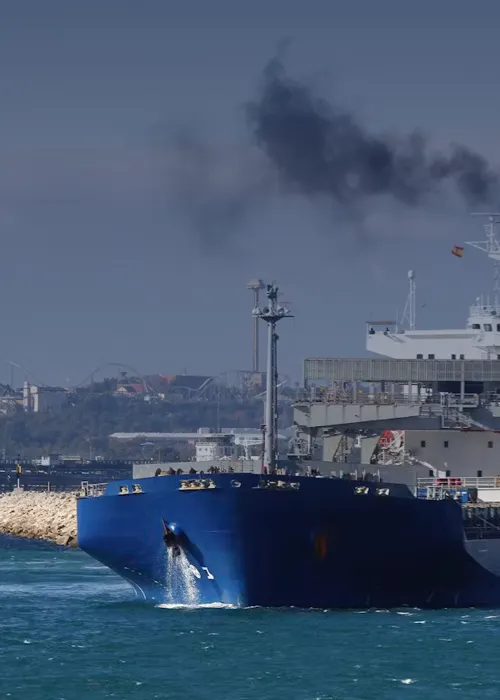
Roadmap to Emission-Free and Climate-Neutral Sailing
The maritime sector is committed to achieving crucial climate and air quality goals, anchored in international agreements such as the Paris Climate Agreement and the Green Deal for Maritime, Inland Shipping, and Ports. By 2050, inland shipping aims to be nearly emission-free, while the maritime industry targets a 50% reduction in CO2 emissions. With deep expertise in energy-saving technologies, emission reduction, and a thorough understanding of local and international maritime environmental legislation, we are ready to guide and advise you in charting a solid roadmap towards emission-free and climate-neutral sailing. Together with our partners, we can work step by step to future-proof your existing fleet or prepare new ship designs with practical, achievable solutions.

Energy Strategy
The challenge of the future energy carrier for shipping is highly complex and requires a thorough analysis of each situation. The right choice of fuel is influenced by various factors, such as the type of vessel, the sailing profile, and economic, technical, and infrastructural considerations. We explore diverse options, including biofuels, green hydrogen, blue ammonia, carbon-neutral fuels, and electric sailing, and are ready to assist and advise you in making forward-looking decisions.
Energy Efficiency
Feasibility analyses can be conducted for energy-efficient techniques for both existing and new vessels, both below and above the waterline. This includes innovations such as Energy Saving Devices, wind-assisted propulsion, waste heat recovery, and air lubrication. By examining the potential benefits of these technologies and evaluating the investment costs, operational impact, and payback period, we can provide well-informed advice on the implementation of suitable energy-saving solutions.
Emission Reduction
In addition to exploring energy-efficient techniques to reduce your fleet’s CO2 footprint, the feasibility of solutions that lower nitrogen oxide (NOx) and particulate matter (PM) emissions can also be assessed. Technologies such as Selective Catalytic Reduction (SCR) and Diesel Particulate Filters (DPF), also known as SCR catalysts and soot filters, can be explored. Through a thorough feasibility study, it can be determined whether these systems are compatible with the (existing) engine configuration, can be integrated into the engine room, and can meet emission standards such as IMO Tier III or EU Stage V.
Advice
If your current vessel does not meet environmental standards or if you wish to build a new, future-proof ship, we are ready to assist you. Based on the latest advancements in technology, the availability of energy-efficient and emission-reducing solutions in the maritime industry, and our vision for the future, we are pleased to advise you as a shipowner in making the right sustainable choice.
Roadmap to Emission-Free and Climate-Neutral Sailing
Together with our partners, we can work step by step to future-proof your existing fleet or prepare new ship designs with practical, achievable solutions.

Energy Strategy
The challenge of the future energy carrier for shipping is highly complex and requires a thorough analysis of each situation. The right choice of fuel is influenced by various factors, such as the type of vessel, the sailing profile, and economic, technical, and infrastructural considerations.
We explore diverse options, including biofuels, green hydrogen, blue ammonia, carbon-neutral fuels, and electric sailing, and are ready to assist and advise you in making forward-looking decisions.
Energy Efficiency
Feasibility analyses can be conducted for energy-efficient techniques for both existing and new vessels, both below and above the waterline. This includes innovations such as Energy Saving Devices, wind-assisted propulsion, waste heat recovery, and air lubrication.
By examining the potential benefits of these technologies and evaluating the investment costs, operational impact, and payback period, we can provide well-informed advice on the implementation of suitable energy-saving solutions.
Emission Reduction
In addition to exploring energy-efficient techniques to reduce your fleet’s CO2 footprint, the feasibility of solutions that lower nitrogen oxide (NOx) and particulate matter (PM) emissions can also be assessed.
Technologies such as Selective Catalytic Reduction (SCR) and Diesel Particulate Filters (DPF), also known as SCR catalysts and soot filters, can be explored.
Through a thorough feasibility study, it can be determined whether these systems are compatible with the (existing) engine configuration, can be integrated into the engine room, and can meet emission standards such as IMO Tier III or EU Stage V.
Advice
If your current vessel does not meet environmental standards or if you wish to build a new, future-proof ship, we are ready to assist you.
Based on the latest advancements in technology, the availability of energy-efficient and emission-reducing solutions in the maritime industry, and our vision for the future, we are pleased to advise you as a shipowner in making the right sustainable choice.
